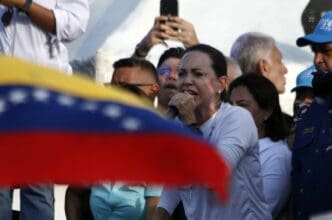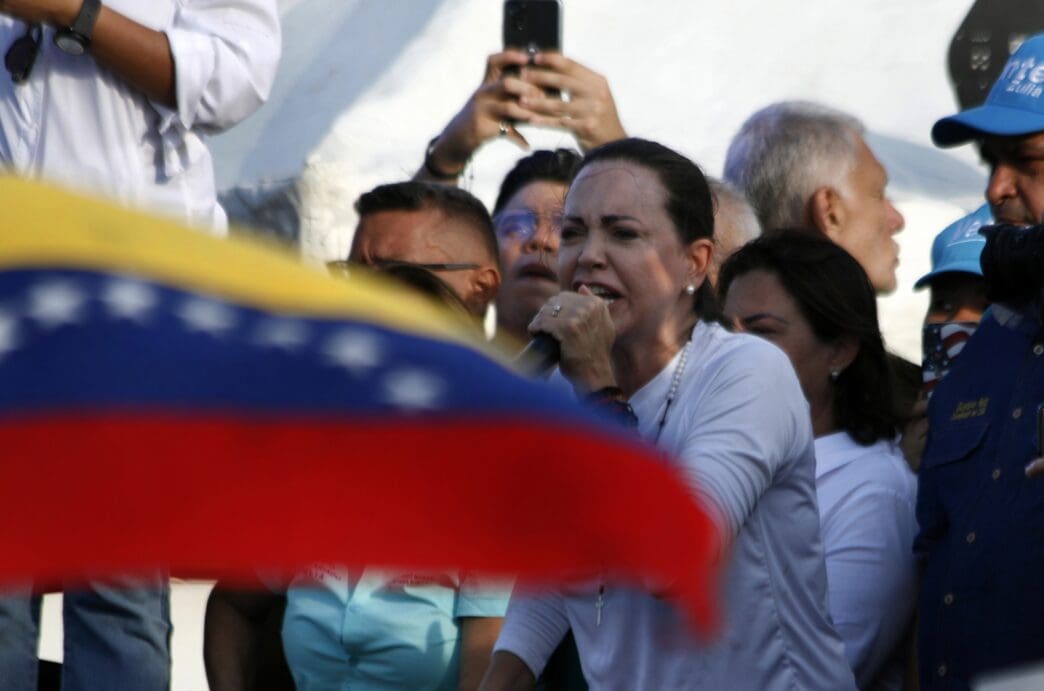OSLO, NORWAY – In a decision that reverberated across the globe, the Norwegian Nobel Committee awarded the 2025 Nobel Peace Prize to María Corina Machado, the defiant leader of Venezuela’s democratic opposition, for her “tireless work in promoting democratic rights” and her unyielding struggle for a peaceful transition of power in a nation crippled by authoritarian rule.
The announcement was immediately celebrated by human rights organizations, democratic governments, and Venezuelan diaspora communities worldwide as a powerful endorsement of the fight for freedom against a despotic regime. The United Nations hailed it as a reflection of the Venezuelan people’s “clear aspirations” for democracy and the rule of law. Yet, within moments, the global consensus was shattered by an unprecedented and ferocious condemnation from the White House, which launched a blistering attack on the Nobel Committee for selecting Machado over President Donald Trump.
This starkly divided reaction has transformed the 2025 Nobel Peace Prize from a prestigious honor into a potent symbol of a deepening global ideological rift. The award pits the long-standing international consensus on human rights and democratic principles against a rising tide of transactional, strongman politics. For Venezuela, the prize elevates its protracted crisis to the highest international stage, carrying with it immense economic and political implications that will be felt from the chambers of the United Nations to the volatile global energy markets.
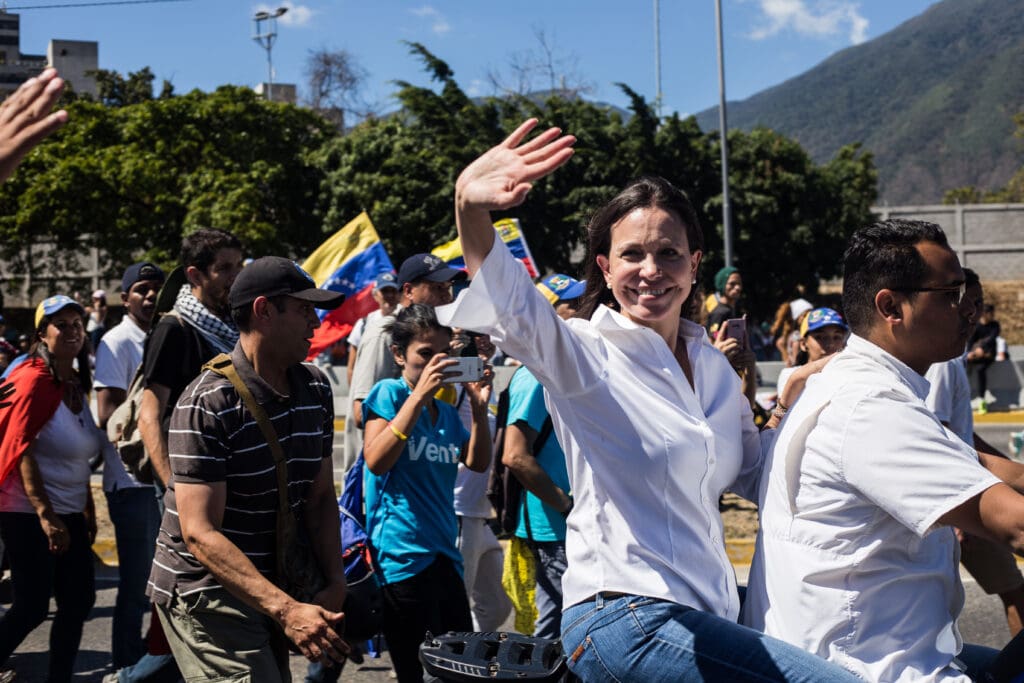
“The Iron Lady” and the Unyielding Flame of Democracy
For an international audience, María Corina Machado has emerged as the single most powerful symbol of democratic resistance in Venezuela. Dubbed “The Iron Lady” for her unflinching resolve in the face of immense personal danger, she has navigated a treacherous political landscape defined by state-sponsored persecution, threats of imprisonment, and the constant risk of assassination.
Her ascent as the undisputed leader of the opposition was cemented in 2023 when she achieved a stunning and overwhelming victory in the opposition’s primary elections, securing an incredible 92% of the vote. This result was not merely a political win; it was an undeniable mandate from a population exhausted by economic collapse, corruption, and the erosion of their fundamental freedoms.
The authoritarian regime of Nicolás Maduro responded not with recognition, but with predictable force. The state apparatus moved to crush the democratic will, arbitrarily barring Machado from holding public office and nullifying her historic victory by decree. Faced with this anti-democratic maneuver, Machado demonstrated shrewd political leadership. Blocked from running herself, she unified the opposition behind a proxy candidate, the veteran diplomat Edmundo González, who was universally understood to be her stand-in.
This strategic move channeled her overwhelming popular mandate into a viable electoral path, effectively making the subsequent election a referendum on her leadership. As the regime intensified its crackdown, Machado was eventually forced into hiding, becoming a political fugitive in the very country she continued to command politically.
It is this profound context of personal sacrifice and unwavering political courage that formed the bedrock of the Nobel Committee’s decision. “María Corina Machado holds the flame of democracy alive amidst a gathering darkness,” the committee declared in its powerful citation. They praised her not only for her bravery but also for her success as a unifying figure, someone who managed to consolidate a historically fractured Venezuelan opposition into a cohesive movement centered on the core principles of free and fair elections.
The award places her in the esteemed company of laureates who have defined the struggle against tyranny in the modern era, including figures like Nelson Mandela, Andrei Sakharov, and Aung San Suu Kyi. This honor bestows upon Machado and the Venezuelan democratic cause a level of global legitimacy and moral authority that the Maduro government cannot easily ignore or dismiss. The prize money, valued at approximately 1.2 million U.S. dollars, also provides not just symbolic weight but crucial potential resources for a political movement that has been systematically starved of funds and support.
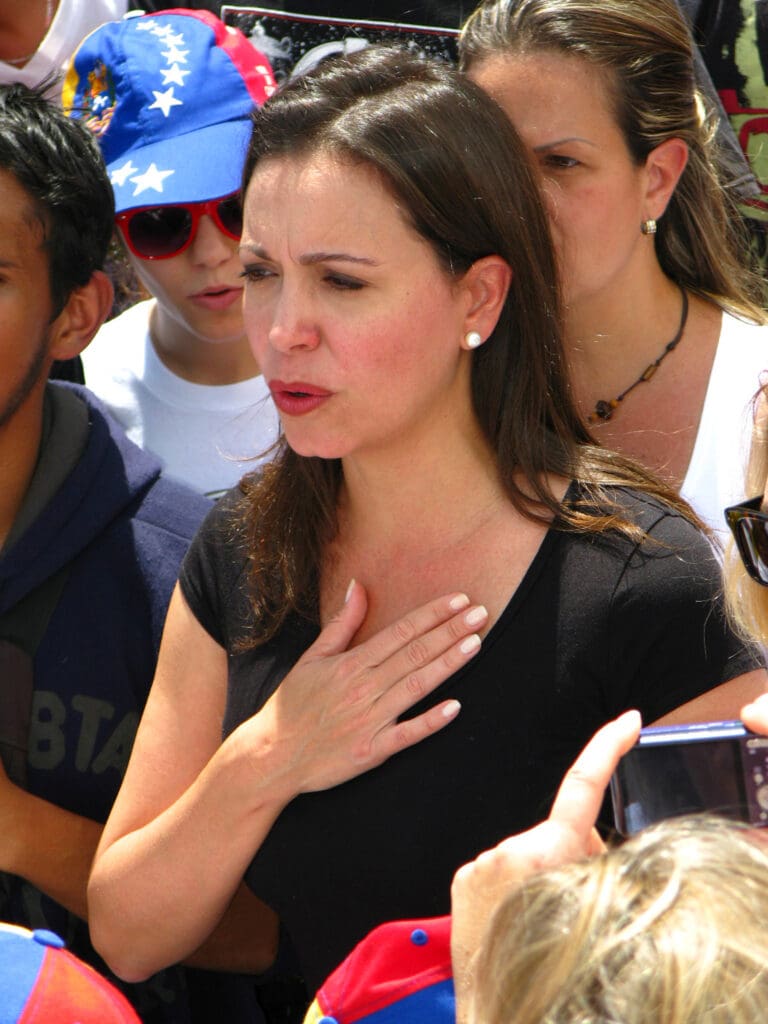
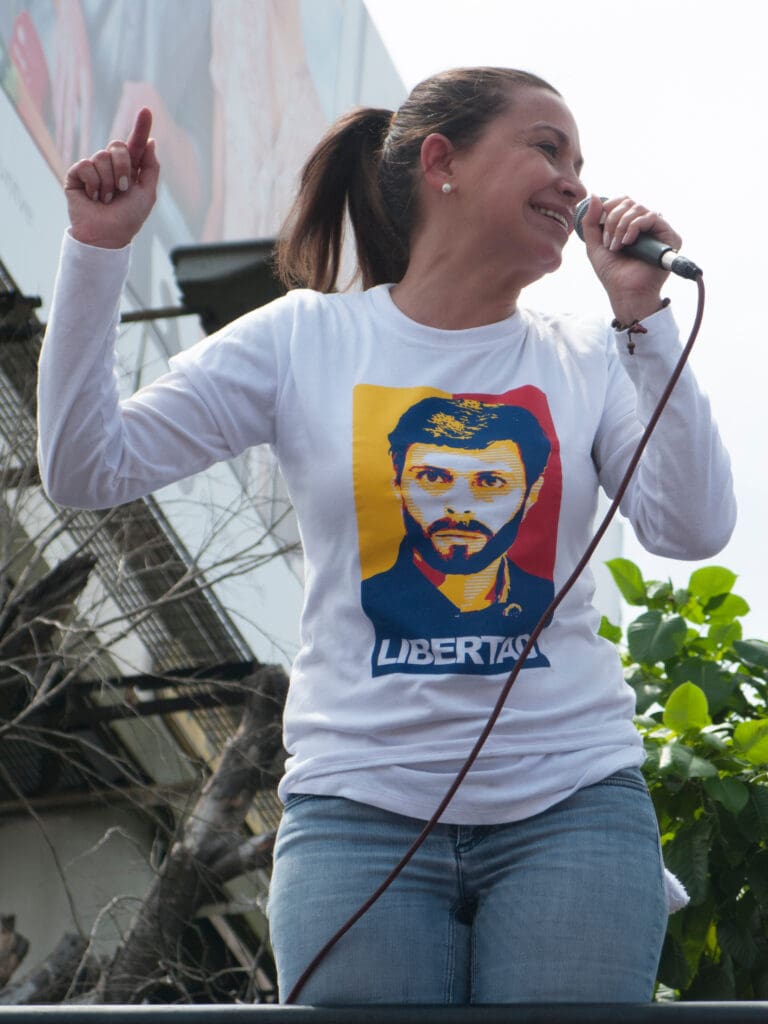
The Economic Shockwave: A New Calculus for a Failed State
Beyond the significant political symbolism, Machado’s Nobel Prize introduces a powerful new dynamic into the global economic calculus surrounding Venezuela. A nation cursed by its own resource wealth, Venezuela sits atop the world’s largest proven oil reserves but has been systematically dismantled by two decades of catastrophic economic mismanagement and kleptocratic rule. Its economy is a textbook case of a failed petrostate, characterized by years of hyperinflation, the near-total collapse of its vital oil industry, crumbling national infrastructure, and a devastating humanitarian crisis that has triggered the largest refugee exodus in the history of the Western Hemisphere.
For international investors, political risk analysts, and global energy markets, the Maduro regime has long represented a black hole of instability and legal uncertainty. The nation’s sovereign debt is in deep default, its key international assets are subject to seizure by creditors, and the legal framework for foreign investment has been all but obliterated, leaving a trail of expropriated companies and broken contracts.
Machado’s Nobel win injects a powerful new variable into this bleak equation. By anointing her as the legitimate and internationally recognized face of Venezuela’s democratic future, the Nobel Committee has sent an unmistakable signal to the global economic community about where the “smart money” on a Venezuelan recovery should ultimately lie.
“This prize fundamentally alters the risk assessment for Venezuela’s future,” commented a Latin America-focused analyst at a major global investment bank. “It provides a clear, internationally-backed focal point for any post-Maduro economic planning. It signals to multinational corporations, sovereign wealth funds, and critical institutions like the International Monetary Fund and the World Bank that a credible alternative leadership exists, one that is prepared to rebuild the country’s democratic institutions and re-engage with the global economy under the rule of law.”
The award is expected to amplify international calls for a “democracy dividend,” a policy framework where the potential easing of crippling economic sanctions is more explicitly and rigorously tied to concrete, verifiable steps toward free and fair elections. This creates a powerful incentive structure for elements within Venezuela who may be seeking a path away from the current regime’s international isolation.
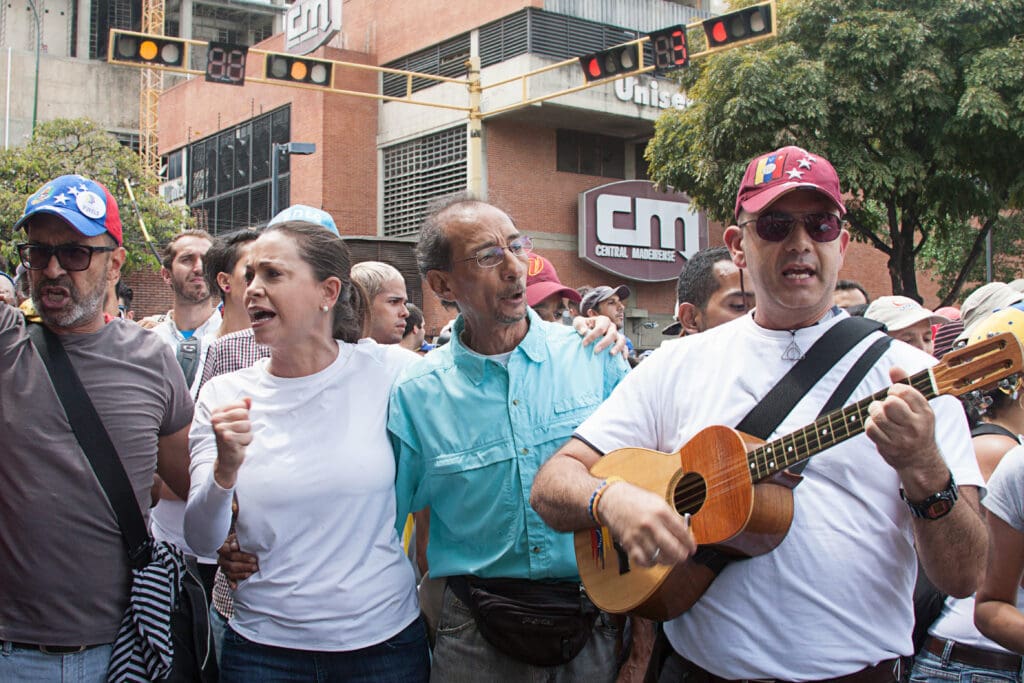
A Diplomatic Firestorm: The White House’s Unprecedented Rebuke
The global chorus of praise for the Nobel Committee’s decision was abruptly and shockingly interrupted by a discordant note from Washington D.C. The Trump administration, in a stunning break with decades of diplomatic precedent, issued a scathing rebuke of the committee’s choice.
White House spokesperson Steven Cheung publicly accused the committee of demonstrating that they “put politics over peace.” In a statement that effectively reversed the traditional U.S. role as a global champion of democratic activists, Cheung argued that President Trump’s record was far more deserving of the honor. “President Trump has the heart of a humanitarian and an unrivaled ability to forge peace,” he asserted, referencing the President’s self-proclaimed role in de-escalating “seven wars” and his active campaign for the prize.
President Trump himself has repeatedly and publicly stated that he “deserved” the prize, making the administration’s official disappointment a direct reflection of his personal lobbying efforts. This unprecedented public criticism of the Nobel Committee by a sitting U.S. administration marks a significant and jarring departure from diplomatic norms, placing the White House at odds with its traditional allies and international institutions.
In a measured and firm response to questions about Trump’s campaign for the prize, Jørgen Watne Frydnes, the chairman of the Nobel Committee, stated simply that the committee makes its decisions with “courage and integrity,” a subtle but powerful defense of their process and their independence from political pressure.
A World United, A Nation Isolated: Global Reactions
The White House’s outlier reaction only served to underscore the overwhelming international support for Machado’s award. The United Nations Human Rights Office immediately declared that the prize reflects the “clear aspirations of the people of Venezuela for free and fair elections, civil and political rights, and the rule of law.”
Support for Machado was also strong within the U.S. political establishment, highlighting a rare bipartisan consensus that stood in stark contrast to the White House’s official position. U.S. Secretary of State Marco Rubio, a prominent and influential voice on Latin American policy, described Machado as “the personification of resilience, tenacity, and patriotism.”
The Nobel Committee itself consciously placed its decision within a broader global narrative, emphasizing that the prize was being awarded at a time when “democracy is under threat” worldwide. Their choice of Machado was a deliberate and powerful statement—a recognition that the struggle for democratic principles in one corner of the world is, in fact, a battle for the “common ground” of freedom everywhere.
From Prize to Policy: The Uncertain Path Forward
With the Nobel diploma and gold medal set to be presented in Oslo on December 10, the immediate and pressing question is a practical one: will María Corina Machado be able to leave Venezuela to accept her prize? The Maduro regime now faces an agonizing choice. Allowing its most prominent and celebrated critic to travel would mean granting her an unparalleled global platform to condemn the regime and rally international support. Refusing her exit, however, would be a self-inflicted wound, confirming the regime’s repressive and illegitimate nature in the full glare of the world’s spotlight.
Regardless of her ability to attend, the prize will undoubtedly galvanize international diplomatic efforts. European and Latin American nations will face increased pressure to align their policies, strengthen their support for the democratic opposition, and intensify their calls for a negotiated transition.
For the people of Venezuela—both those enduring the crisis at home and the millions who have been forced into exile—the 2025 Nobel Peace Prize is far more than a symbolic honor. It is a powerful, tangible acknowledgment of their decades-long suffering and a testament to their enduring hope. It is a clear and resounding signal that the world has not forgotten them, and that the fight for a free and prosperous Venezuela, led by its “Iron Lady,” is a cause worthy of the world’s most prestigious and resonant honor.

